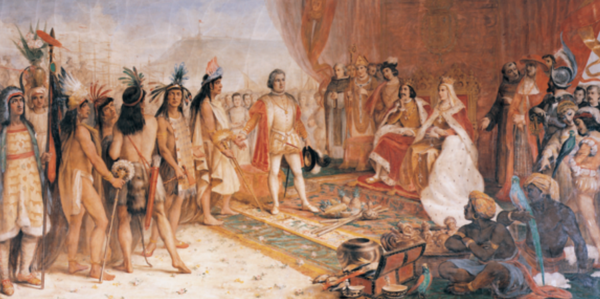

While I typically refrain from tackling controversial topics, especially as a representative of Notre Dame, this is something that I find to be particularly relevant, given our current climate as young adults and seekers of knowledge. Regardless of where you may stand politically, there are topics that should certainly be discussed (even though they may seem small or trivial). In this short essay, I will be speaking on the topic of Indigenous Peoples’ Day and Columbus Day – the dangerous dichotomy that is presented with these names and why it is so incredibly important for us to stick to using the former.
I will preface this by saying that I am neither indigenous nor particularly vocal about my political beliefs. I am just a concerned college student who wants to see the world grow in a way that is conducive to positivity and love. The views I hold certainly don’t align with everyone else’s, but maybe I can serve as a means of healthy reflection and introspection.
The current state of affairs is this: the term “Columbus Day” is used to celebrate the life of the holiday’s namesake, Christopher Columbus – an explorer largely attributed as being one of the first Western Europeans to travel to the North American continent and inspire other explorers to follow. His exploration is widely lauded in American textbooks and heroized with terms of bravery and intrigue. However, as we have become more aware of the cultures that live within our borders, it is becoming more apparent that Columbus’ discoveries came at the expense of a developed civilization of humans – the American Indians. His touchdown on American soil has two sides: idealism and destruction – both of which can be equally problematic.
On paper, Columbus sounds like a swell guy who really helped build the American persona – growth-minded, wide-eyed, and inspired. Idealistically, his legacy draws to mind daring feats and curiosity for many Americans. However, ironically, this statement only holds true if we exclude a set of highly important data points – the millions of Americans who were technically Americans before America was even named America. His discoveries came with the promise of a new nation, but the destruction of another. Millions of American Indians were drawn out of their land, plagued with illnesses brought over from Europe, and exterminated as a result of American expansion and conquest. While there are certainly several positives that can be drawn from Columbus’ discoveries, a majority are mirrored by an equally compelling list of negatives.
This is why we must move toward abolishing the usage of “Columbus Day.” Not because we refuse to acknowledge Columbus’ contributions to what we now know as America, but because we choose to acknowledge the Americans whose ancestors lived on, cared for, and fought for our country. The AIAN (American Indians, Alaskan Natives) are still here. And their numbers are growing. We, as the current inhabitants of America, have a powerful opportunity to join this narrative.
On-campus, the Native American Student Association of Notre Dame (NASAND) and American Indian Catholic Schools Network (AICSN) both hold initiatives and events to raise awareness for the AIAN community and culture. Since the University is built on land initially inhabited by the Pokagon Band of the Potawatomi Indians, it would only make sense for us to expect Notre Dame students to grow in their awareness of the Native population. However, unless situations like this one are brought to light and ironed out, this isn’t guaranteed. Thus, it is in our best interest to open the discussion. We must understand the problem, fix it, and move forward. Holidays are meant to be a source of celebration or commemoration – not a source of fear. It isn’t Columbus Day for everybody, especially if keeping its name benefits nobody.